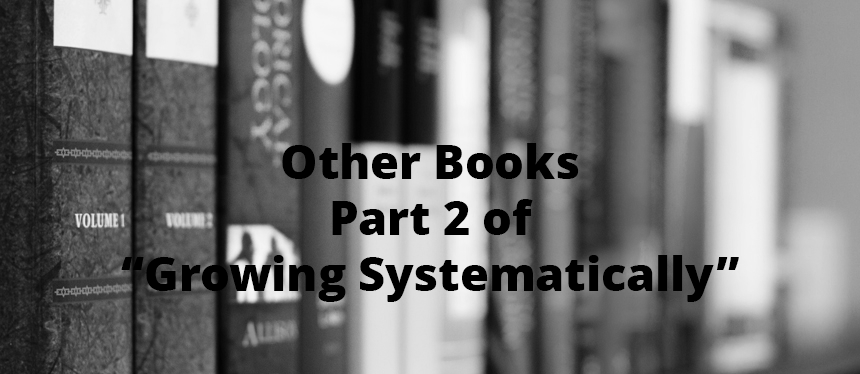
In my last post I talked about how “other books” can be helpful to Christians in their process of spiritual growth. In particular, I pointed out Grudem’s Systematic Theology. But, what about books that are completely “secular” or written by non- Christian authors? Should we read them? Are they helpful? Can they help us grow?
One thing we have to recognize is that the Bible is unique literature. It is inspired of God, inerrant, infallible, and a pure means of grace (as is prayer and the the work of the Holy Spirit). It is fully reliable, authoritative, and sufficient (2 Timothy 3:17, 17; 2 Peter 1:21), and as the Reformers would say, “sola Scriptura” (scripture alone). There is no equal. But, this does not mean that God does not work His grace in our lives and cause us to grow through people, circumstances, or even other books—sacred or secular. It is just that all of these other works must be subordinate in our thinking to God’s Word.
All “other” literature is impacted by the fall of man. It is, and should be carefully scrutinized. I have heard people say, “I don’t agree with everything Grudem says.” My response is, “does anyone agree with everything you say?” Any earthly writing will require us to “eat the fish and spit out the bones.” The answer is not to censor all other works, but to grow in our biblical discernment, teach it, and practice it. There is a difference between developing a discerning spirit and developing a critical spirit. A discerning spirit will strengthen the church, a critical one will tear it apart.
In particular, pastor’s have also asked me about reading secular business and leadership books. I am thinking of books like Good to Great by Jim Collins and Peter Drucker’s classic, The Effective Executive. I have found many of these to be extremely helpful in the pastoral ministry. My admonition is to keep reading books—sacred and secular! Read them and interpret them through the lens of scripture, and grow!